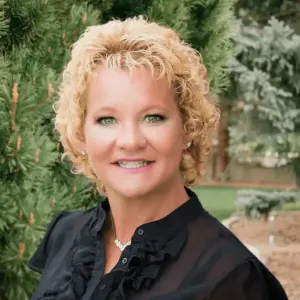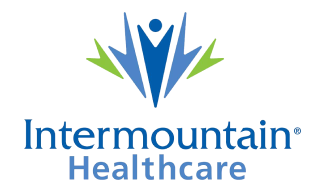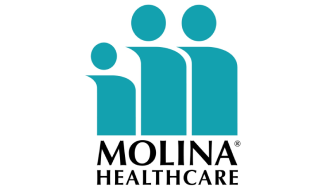
Mapleton, Utah, United States
Maple Mountain Mental Health & Wellness
Verified
Verified
This provider’s information has been quality-checked by Recovery.com’s Research Team for accuracy and completeness, including center verification through appropriate third-party organizations.
Joint Commission Accredited
The Joint Commission accreditation is a voluntary, objective process that evaluates and accredits healthcare organizations (like treatment centers) based on performance standards designed to improve quality and safety for patients. To be accredited means the treatment center has been found to meet the Commission's standards for quality and safety in patient care.
Provider's Policy
Maple Mountain Mental Health & Wellness is a treatment center committed to helping clients achieve their recovery goals. We understand that insurance can be a barrier to treatment, but we are here to help you verify your insurance and get the care you need. Please contact our admissions team to hear about your coverage.
Estimated Cash Pay Rate
The cost listed here ($2,200-$30,000) is an estimate of the cash pay price. Center pricing can vary based on program and length of stay. Contact the center for more information. Recovery.com strives for price transparency so you can make an informed decision.
Highlights from the Center
Highlights
These highlights are provided by and paid for by the center.
Equine Therapy
Therapeutic Location
Unique Cultural Experiences
About Maple Mountain Mental Health & Wellness
Maple Mountain Recovery helps clients heal from trauma, anxiety, depression, attention-deficit/hyperactivity disorder (ADHD), bipolar disorder, and substance use disorders through individualized, trauma-focused care. With residential and intensive outpatient programs, they empower each client to create positive change in every aspect of their life. Surrounded by Utah’s natural beauty and serving a max of 16 clients, they offer a warm environment that blends evidence-based, experiential, and innovative therapies for lasting well-being.
Embrace Whole-Person Therapies
Maple Mountain embraces a holistic approach that considers all aspects of the client’s well-being, including their physical, mental, emotional, social, intellectual, and spiritual health. Their program integrates a diverse range of evidence-based therapies alongside experiential and innovative treatments, including individual and group therapy, medication management, experiential therapy, and functional medicine.
Build Confidence in Nature & Movement
At Maple Mountain, healing extends beyond traditional talk therapy to include equine therapy, nature outings, and indoor movement. Guided by a therapist, clients engage with horses to process trauma, build confidence, and learn coping skills. Outdoor activities like hiking and kayaking support mood, reduce stress, and foster connection with the natural world. Indoor experiences such as rock climbing and jiu-jitsu offer physical challenge and emotional growth—boosting focus, self-esteem, and resilience. Whether on a trail, in the water, or on the mat, these experiences provide clients with dynamic, embodied tools for recovery and self-regulation.
Settle into Comfortable, Healthy Living
Maple Mountain offers a variety of amenities to make the client's stay as comfortable and enjoyable as possible. These include a sauna, gym, two acres of property, organic nutritious meals, a theater room, and 24/7 staff support. Clients stay in private or shared rooms with queen-size beds, some with en suite bathrooms, and are permitted to use their cell phones.
Read More

Insurance Accepted
Provider's Policy:Maple Mountain Mental Health & Wellness is a treatment center committed to helping clients achieve their recovery goals. We understand that insurance can be a barrier to treatment, but we are here to help you verify your insurance and get the care you need. Please contact our admissions team to hear about your coverage.
Discover Healing via Heat, Breath, & Sound
Maple Mountain deepens healing with sensory activities rarely offered in other programs. The sweat lodge uses heat and steam to support immunity, stress relief, and processing trauma. Yoga nidra induces deep relaxation by focusing on the breath. The bio sound lounge uses sound and vibration alongside video imagery to calm the nervous system.
Improve Well-Being with Functional Medicine
Maple Mountain uses tools like food sensitivity, hormone, and neurotoxin testing to identify imbalances and inflammation that may be contributing to mental health problems. Based on results, they combine Western and Eastern medical traditions in a customized plan that may include dietary changes, lifestyle modifications, supplements, and more to improve overall well-being.
Explore Ketamine-Assisted Therapy
Following a clinical assessment to ensure it will be beneficial to the client, Maple Mountain provides ketamine-assisted therapy to reduce symptoms of depression, anxiety, post-traumatic stress disorder (PTSD), and obsessive-compulsive disorder (OCD). In a controlled setting, a therapist provides support throughout each session, ensuring the client processes insights and applies them meaningfully in daily life.
Extend Support to the Whole Family
Maple Mountain strongly encourages family involvement, recognizing their participation often leads to better recovery outcomes. A dedicated family advocate provides weekly updates and serves as a communication bridge among the clinical team, the client, and their family. Maple Mountain also offers weekly support groups: one for families only and one with clients and their families.

Center Overview
Estimated Cash Pay Rate
Older Adults
Addiction and mental health treatment caters to adults 55+ and the age-specific challenges that can come with recovery, wellness, and overall happiness.
Executives
Executive treatment programs typically directly support the needs of people who manage businesses and may provide flexible schedules and office space to allow work during treatment.
LGBTQ+
Addiction and mental illnesses in the LGBTQ+ community must be treated with an affirming, safe, and relevant approach, which many centers provide.
Men and Women
Men and women attend treatment for addiction in a co-ed setting, going to therapy groups together to share experiences, struggles, and successes.
Midlife Adults
For adults ages 40+, treatment shifts to focus on the unique challenges, blocks, and risk factors of their age group, and unites peers in a similar community.
Pregnant Women
Addiction and mental health treatment meets the clinical and psychological needs of pregnant women, ensuring they receive optimal care in all areas.
Professionals
Busy, high-ranking professionals get the personalized treatment they need with greater accommodations for work, privacy, and outside communication.
Veterans
Patients who completed active military duty receive specialized treatment focused on trauma, grief, loss, and finding a new work-life balance.

Treatment Focus
You can admit to this center with a primary substance use disorder or a primary mental health condition. You'll receive support each step of the way and individualized care catered to your unique situation and diagnosis.
Treatment
Specializations
Anxiety
Anxiety is a common mental health condition that can include excessive worry, panic attacks, physical tension, and increased blood pressure.
Co-Occurring Disorders
A person with multiple mental health diagnoses, such as addiction and depression, has co-occurring disorders also called dual diagnosis.
Depression
Symptoms of depression may include fatigue, a sense of numbness, and loss of interest in activities. This condition can range from mild to severe.
Licensed Primary Mental Health
Some primary care providers offer mental health diagnosis and treatment. This can prevent patients from developing more serious conditions.
Professionals
Busy, high-ranking professionals get the personalized treatment they need with greater accommodations for work, privacy, and outside communication.
Post Traumatic Stress Disorder
PTSD is a long-term mental health issue caused by a disturbing event or events. Symptoms include anxiety, dissociation, flashbacks, and intrusive thoughts.
Suicidality
With suicidality, a person fantasizes about suicide, or makes a plan to carry it out. This is a serious mental health symptom.
Trauma
Some traumatic events are so disturbing that they cause long-term mental health problems. Those ongoing issues can also be referred to as "trauma."
Treatment Services
Day Treatment
In a PHP, patients live at home but follow an intensive schedule of treatment. Most programs require you to be on-site for about 40 hours per week.
Intensive Family Program
Some rehabs offer intensive programs for loved ones. Group and individual therapy sessions help everyone heal, and improve family dynamics.
Intensive Outpatient Program
In an IOP, patients live at home or a sober living, but attend treatment typically 9-15 hours a week. Most programs include talk therapy, support groups, and other methods.
Licensed Primary Mental Health
Some primary care providers offer mental health diagnosis and treatment. This can prevent patients from developing more serious conditions.
Outpatient
During outpatient rehab, patients attend a structured treatment program while continuing to live at home.
Residential
In a residential rehab program, patients live onsite, with access to daily treatment and 24-hour care. An average stay is 30-90 days.
Approaches
Bio-Medical
A philosophy focusing on the biomechanics behind mental health disorders, using prescribed medications as a supplement to behavioral therapy.
Holistic
A non-medicinal, wellness-focused approach that aims to align the mind, body, and spirit for deep and lasting healing.
Individual Treatment
Individual care meets the needs of each patient, using personalized treatment to provide them the most relevant care and greatest chance of success.
Wellness
Wellness philosophies focus on the physical, mental, and spiritual wellness of each patient, helping them restore purpose with natural remedies.
Therapies
1-on-1 Counseling
Patient and therapist meet 1-on-1 to work through difficult emotions and behavioral challenges in a personal, private setting.
Meditation & Mindfulness
A practiced state of mind that brings patients to the present. It allows them to become fully aware of themselves, their feelings, and the present moment.
Trauma-Specific Therapy
This form of talk therapy addresses any childhood trauma at the root of a patient's current diagnosis.
Transcranial Magnetic Stimulation
Localized magnetic pulses stimulate areas of the brain to increase brain activity and reduce abnormal functions.
Adventure Therapy
This experiential approach uses the physical and emotional challenges of outdoor activities as tools for personal growth.
Attachment-Based Family Therapy
ABFT is a trauma-focused therapy that teaches you to form healthy relationships by rebuilding trust and healing attachment issues formed in childhood.
Animal Therapy
Animals can inspire trust and self-worth. In this experiential therapy, guided interactions are used to improve social skills and emotion regulation.
Aromatherapy
Inhaling or topically applying essential oils can help relieve stress, soothe pains, and relieve emotional distress.
Art Therapy
Visual art invites patients to examine the emotions within their work, focusing on the process of creativity and its gentle therapeutic power.
Conditions We Treat
Grief and Loss
Grief is a natural reaction to loss, but severe grief can interfere with your ability to function. You can get treatment for this condition.
Personality Disorders
Personality disorders destabilize the way a person thinks, feels, and behaves. If untreated, they can undermine relationships and lead to severe distress.
ADHD, ADD
ADHD is a common mental health condition caused by dopamine imbalance. Common symptoms include inattention, hyperactivitiy, and impulsivity.
Anger
Although anger itself isn't a disorder, it can get out of hand. If this feeling interferes with your relationships and daily functioning, treatment can help.
Anxiety
Anxiety is a common mental health condition that can include excessive worry, panic attacks, physical tension, and increased blood pressure.
Bipolar
This mental health condition is characterized by extreme mood swings between depression, mania, and remission.
Burnout
Burnout entails mental and physical exhaustion, and leads to a severe lack of fulfillment. This condition is often caused by overwork.
Chronic Pain Management
Long-term physical pain can have an affect on mental health. Without support, it can also impact your daily life and even lead to addiction.
Substances We Treat
Alcohol
Using alcohol as a coping mechanism, or drinking excessively throughout the week, signals an alcohol use disorder.
Benzodiazepines
Benzodiazepines are prescribed to treat anxiety and sleep issues. They are highly habit forming, and their abuse can cause mood changes and poor judgement.
Chronic Relapse
Consistent relapse occurs repeatedly, after partial recovery from addiction. This condition requires long-term treatment.
Co-Occurring Disorders
A person with multiple mental health diagnoses, such as addiction and depression, has co-occurring disorders also called dual diagnosis.
Cocaine
Cocaine is a stimulant with euphoric effects. Agitation, muscle ticks, psychosis, and heart issues are common symptoms of cocaine abuse.
Drug Addiction
Drug addiction is the excessive and repetitive use of substances, despite harmful consequences to a person's life, health, and relationships.
Ecstasy
Ecstasy is a stimulant that causes intense euphoria and heightened awareness. Abuse of this drug can trigger depression, insomnia, and memory problems.
Heroin
Heroin is a highly addictive and illegal opioid. It can cause insomnia, collapsed veins, heart issues, and additional mental health issues.
Psychedelics
Hallucinogenic drugs—like LSD—cause euphoria and increased sensory experiences. When abused, they can lead to depression and psychosis.
Aftercare
Experience
Personal Amenities
Amenities
Special Considerations
Center Pets
Addiction and mental health facilities with pets allow patients to interact with friendly dogs, cats, horses, and in some cases, even dolphins.
Executive Program
Addiction and mental health treatment for executives typically involves high discretion, greater technology access, and more private, 1-on-1 care.
Flexible technology policies
Centers with flexible technology policies allow professionals to stay in touch with work and give patients a greater sense of connection and normalcy.
Gender-specific groups
Patients in gender-specific groups gain the opportunity to discuss challenges unique to their gender in a comfortable, safe setting conducive to healing.
Healthy Meals are provided
Great food meets great treatment, with providers serving healthy meals to restore nutrition, wellbeing, and health.
LGBTQ group
Group therapy unites LGBTQ+ patients in a safe and culturally competent setting, encouraging peer support under the expert leadership of a therapist.
Activities
Yoga
Yoga is both a physical and spiritual practice. It includes a flow of movement, breathing techniques, and meditation.
Off-Site Activities
Yoga
Yoga is both a physical and spiritual practice. It includes a flow of movement, breathing techniques, and meditation.
Off-Site Amenities
Professional Staff

Bud Harper
Founder

Stephanie
Operations and Equine Therapy Director

JeanAnne
Medical Director – Psychiatric
PHD, APRN, CAPRN-AP, PMHNP

Kevin
Clinical Director
View More Team Members
Learn more about Maple Mountain Mental Health & Wellness
Testimonial
Maple Mountain Recovery has the most family feel to it, which helped me open up and share my real feelings that I always just tucked away, the staff is amazing, and the food it to die for. Thank you, Maple Mountain Recovery, for remaining in my life today, nine months clean.
J. Roberts
We love hearing about your treatment experience
Help individuals and families seeking treatment by sharing your first-hand experience with this treatment provider. Review Guidelines.





















































